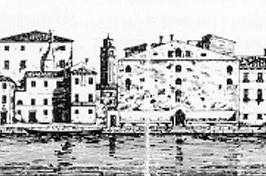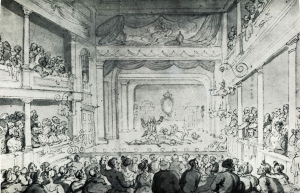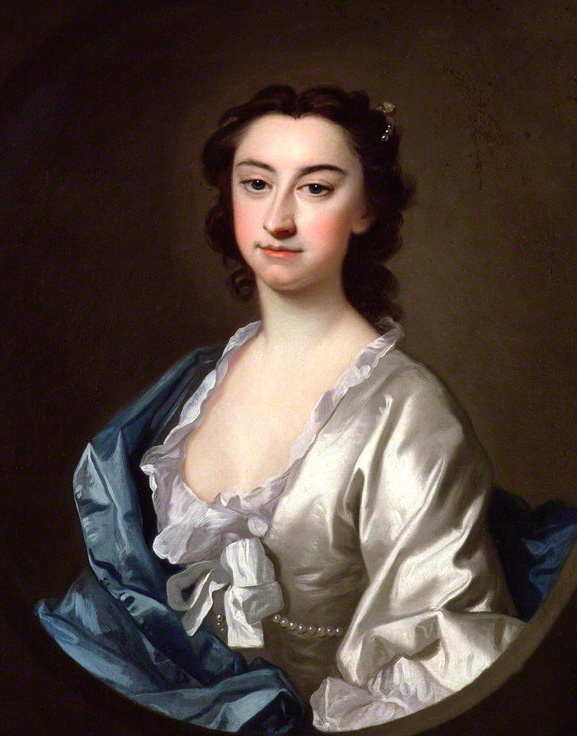|
1750 In Literature
This article contains information about the literary events and publications of 1750. Events *March – ''The Rambler'' is founded by Edward Cave; it lasts for 208 issues, and is mostly written by Samuel Johnson. *March 5 – Shakespeare's ''Richard II'' (in Colley Cibber's version) is presented at their theatre on Nassau Street (Manhattan) by Walter Murray and Thomas Kean, the earliest known significant professional performance of Shakespeare in North America. *''unknown dates'' **Weekly meetings for contributors to the ''Encyclopédie'' begin, at the salon of Baron d'Holbach. **Jean-Jacques Rousseau wins the prize of the Academy of Dijon for his Discourse on the Arts and Sciences. **London theatres wage "the ''Romeo and Juliet'' war" – competing productions appear with David Garrick and Anne Bellamy at the Theatre Royal, Drury Lane and with Spranger Barry and Susannah Cibber at the Royal Opera House in Covent Garden. ** Old Orchard Street Theatre opens in Bath (England) unde ... [...More Info...] [...Related Items...] OR: [Wikipedia] [Google] [Baidu] |
1749 In Literature
This article contains information about the literary events and publications of 1749. Events *February – The second part of John Cleland's erotic novel ''Fanny Hill (Memoirs of a Woman of Pleasure)'' appears in London. He is released from debtor's prison in March. The Church of England asks the Secretary of State to "stop the progress of this vile Book, which is an open insult upon Religion and good manners." In November, Cleland is arrested again, charged with "corrupting the King's subjects." *February 28 – Henry Fielding's picaresque comic novel ''The History of Tom Jones, a Foundling'' is published in London by Andrew Millar, who pays the author £700. It reaches four editions by the end of the year. During this year, Fielding becomes magistrate at Bow Street and enlists help from the Bow Street Runners, an early police force. *April 12 – Oxford's circular Radcliffe Library, designed by James Gibbs, opens. *April 17 – Charles Macklin plays Lovegold in Henry Fielding' ... [...More Info...] [...Related Items...] OR: [Wikipedia] [Google] [Baidu] |
Romeo And Juliet
''Romeo and Juliet'' is a Shakespearean tragedy, tragedy written by William Shakespeare early in his career about the romance between two Italian youths from feuding families. It was among Shakespeare's most popular plays during his lifetime and, along with ''Hamlet'', is one of his most frequently performed plays. Today, the Title character, title characters are regarded as archetype, archetypal young lovers. ''Romeo and Juliet'' belongs to a tradition of tragic Romance (love), romances stretching back to Ancient history, antiquity. The plot is based on an Italian tale translated into verse as ''The Tragical History of Romeus and Juliet'' by Arthur Brooke (poet), Arthur Brooke in 1562 and retold in prose in ''Palace of Pleasure'' by William Painter (author), William Painter in 1567. Shakespeare borrowed heavily from both but expanded the plot by developing a number of supporting characters, particularly Mercutio and Count Paris, Paris. Believed to have been written between ... [...More Info...] [...Related Items...] OR: [Wikipedia] [Google] [Baidu] |
Tobias Smollett
Tobias George Smollett (baptised 19 March 1721 – 17 September 1771) was a Scottish poet and author. He was best known for picaresque novels such as ''The Adventures of Roderick Random'' (1748), ''The Adventures of Peregrine Pickle'' (1751) and ''The Expedition of Humphry Clinker'' (1771), which influenced later novelists, including Charles Dickens. His novels were liberally altered by contemporary printers; an authoritative edition of each was edited by Dr O. M. Brack Jr and others. Early life and family Smollett was born at Dalquhurn, now part of Renton in present-day West Dunbartonshire, Scotland, and baptised on 19 March 1721 (his birth date is estimated as 3 days previously). He was the fourth son of Archibald Smollett of Bonhill, a judge and landowner, laird of Bonhill, living at Dalquhurn on the River Leven, who died about 1726, when Smollett was just five years old. His mother Barbara Smollett née Cunningham brought the family up there, until she died about 1766. He ... [...More Info...] [...Related Items...] OR: [Wikipedia] [Google] [Baidu] |
Teatro San Angelo
The Teatro San Angelo (in Venetian dialect) or Teatro Sant' Angelo (in Italian) was once a theatre in Venice which ran from 1677 until 1803. It was the last of the major Venetian theatres to be built in the 1650s–60s opera craze following Teatro Santi Giovanni e Paolo in 1654, Teatro San Samuele 1655, Teatro San Salvatore 1661, Teatro San Giovanni Crisostomo in 1667. The Teatro San Angelo was located in the Campo San 'Angelo, facing the Grand Canal and Rialto Bridge, on the sites of two demolished palazzi belonging to the Marcellos and Capellos. The project was completed in 1676 by Francesco Santorini, and opened in 1677 under the families of Benedetto Marcello and the Capellos. The house was opened with the opera ''Helena rapita da Paride'' of Domenico Freschi, (1677) and continued with operas by Freschi, Gasparini, Albinoni and Bononcini. From around 1715 onwards the house was best known as the venue of many of the operas of Antonio Vivaldi.John Booth ''Vivaldi'' 1989 "On 4 ... [...More Info...] [...Related Items...] OR: [Wikipedia] [Google] [Baidu] |
Carlo Goldoni
Carlo is a given name. It is an Italian form of Charles. It can refer to: *Carlo (name) *Monte Carlo *Carlingford, New South Wales, a suburb in north-west Sydney, New South Wales, Australia *A satirical song written by Dafydd Iwan about Prince Charles. *A former member of Dion and the Belmonts best known for his 1964 song, Ring A Ling. *Carlo (submachine gun), an improvised West Bank gun. * Carlo, a fictional character from Animal Crossing: Pocket Camp * It can be confused with Carlos * Carlo means “man” (from Germanic “karal”), “free man” (from Middle Low German “kerle”) and “warrior”, “army” (from Germanic “hari”). See also *Carl (name) *Carle (other) *Carlos (given name) Carlos is a masculine given name, and is the Portuguese and Spanish variant of the English name ''Charles'', from the Germanic ''Carl''. Notable people with the name include: Royalty *Carlos I of Portugal (1863–1908), second to last King of P ... {{disambig Italian ... [...More Info...] [...Related Items...] OR: [Wikipedia] [Google] [Baidu] |
Bath, Somerset
Bath () is a city in the Bath and North East Somerset unitary area in the county of Somerset, England, known for and named after its Roman-built baths. At the 2021 Census, the population was 101,557. Bath is in the valley of the River Avon, west of London and southeast of Bristol. The city became a World Heritage Site in 1987, and was later added to the transnational World Heritage Site known as the "Great Spa Towns of Europe" in 2021. Bath is also the largest city and settlement in Somerset. The city became a spa with the Latin name ' ("the waters of Sulis") 60 AD when the Romans built baths and a temple in the valley of the River Avon, although hot springs were known even before then. Bath Abbey was founded in the 7th century and became a religious centre; the building was rebuilt in the 12th and 16th centuries. In the 17th century, claims were made for the curative properties of water from the springs, and Bath became popular as a spa town in the Georgian era. ... [...More Info...] [...Related Items...] OR: [Wikipedia] [Google] [Baidu] |
Old Orchard Street Theatre
The Old Orchard Street Theatre in Bath, Somerset, England was built as a provincial theatre before becoming a Roman Catholic Church and since 1865 has been a Masonic Hall. It is a Grade II listed building. Theatre In 1705 the first theatre opened in Bath. The building by George Trim was small and cramped and made little profit in the years before its demolition in 1738. The site it was on is now the Royal National Hospital for Rheumatic Diseases. A New Theatre opened in Kingsmead Street in 1723 and operated until 1751. In 1747 John Hippisley proposed the construction of a new theatre and a revised version in 1748 just before his death. The planning was taken over by John Palmer, a local brewer and chandler. The site for a new theatre was chosen by John Wood, the Elder, who laid out much of the city, on the site of the old orchard of Bath Abbey. Construction work for the theatre in Old Orchard Street began in 1748, to designs by the architect Thomas Jolly of Hippesley and Watt ... [...More Info...] [...Related Items...] OR: [Wikipedia] [Google] [Baidu] |
Covent Garden
Covent Garden is a district in London, on the eastern fringes of the West End, between St Martin's Lane and Drury Lane. It is associated with the former fruit-and-vegetable market in the central square, now a popular shopping and tourist site, and with the Royal Opera House, itself known as "Covent Garden". The district is divided by the main thoroughfare of Long Acre, north of which is given over to independent shops centred on Neal's Yard and Seven Dials, while the south contains the central square with its street performers and most of the historical buildings, theatres and entertainment facilities, including the London Transport Museum and the Theatre Royal, Drury Lane. The area was fields until briefly settled in the 7th century when it became the heart of the Anglo-Saxon trading town of Lundenwic, then abandoned at the end of the 9th century after which it returned to fields. By 1200 part of it had been walled off by the Abbot of Westminster Abbey for use as arable l ... [...More Info...] [...Related Items...] OR: [Wikipedia] [Google] [Baidu] |
Royal Opera House
The Royal Opera House (ROH) is an opera house and major performing arts venue in Covent Garden, central London. The large building is often referred to as simply Covent Garden, after a previous use of the site. It is the home of The Royal Opera, The Royal Ballet, and the Orchestra of the Royal Opera House. The first theatre on the site, the Theatre Royal (1732), served primarily as a playhouse for the first hundred years of its history. In 1734, the first ballet was presented. A year later, the first season of operas, by George Frideric Handel, began. Many of his operas and oratorios were specifically written for Covent Garden and had their premieres there. The current building is the third theatre on the site, following disastrous fires in 1808 and 1856 to previous buildings. The façade, foyer, and auditorium date from 1858, but almost every other element of the present complex dates from an extensive reconstruction in the 1990s. The main auditorium seats 2,256 people, mak ... [...More Info...] [...Related Items...] OR: [Wikipedia] [Google] [Baidu] |
Susannah Maria Arne
Susannah Maria Cibber (née Arne; February 1714 – 30 January 1766) was a celebrated English singer and actress. She was the sister of the composer Thomas Arne. Although she began her career as a soprano, her voice lowered in the early part of her career to that of a true contralto. She was universally admired for her ability to move her audiences emotionally both as an actress and vocalist. Possessing a sweet, expressive, and agile singing voice with a wide vocal range, Cibber was an immensely popular singer, even if at times her voice was criticized for a lack of polished technique. Charles Burney wrote of her singing that "by a natural pathos, and perfect conception of the words, she often penetrated the heart, when others, with infinitely greater voice and skill, could only reach the ear." Cibber was particularly admired by Handel, who wrote numerous parts especially for her including the contralto arias in his 1741 oratorio ''Messiah'', the role of Micah in ''Samson'', the r ... [...More Info...] [...Related Items...] OR: [Wikipedia] [Google] [Baidu] |
Spranger Barry
Spranger Barry (23 November 1719 – 10 January 1777) was an Irish actor. Life He was born in Skinner's Row, Dublin, the son of a silversmith, to whose business he was brought up. He took over the business but was not successful. His first appearance on the stage was at the Theatre Royal, Smock Alley, Dublin, on 5 February 1744, and his engagement at once increased its prosperity. His first London appearance was made in 1746 as Othello at the Theatre Royal, Drury Lane. Here his talents were speedily recognized, and in ''Hamlet'' and ''Macbeth'' he alternated with David Garrick, arousing the latter's jealousy by his success as Romeo. This resulted in his leaving Drury Lane for the Covent Garden Theatre in 1750, accompanied by Mrs Cibber, his Juliet. Both houses now at once put on ''Romeo and Juliet'' for a series of rival performances, and Barry's Romeo was preferred by the critics to Garrick's. In 1758 Barry opened the Crow Street Theatre in Dublin, and later a new The ... [...More Info...] [...Related Items...] OR: [Wikipedia] [Google] [Baidu] |








